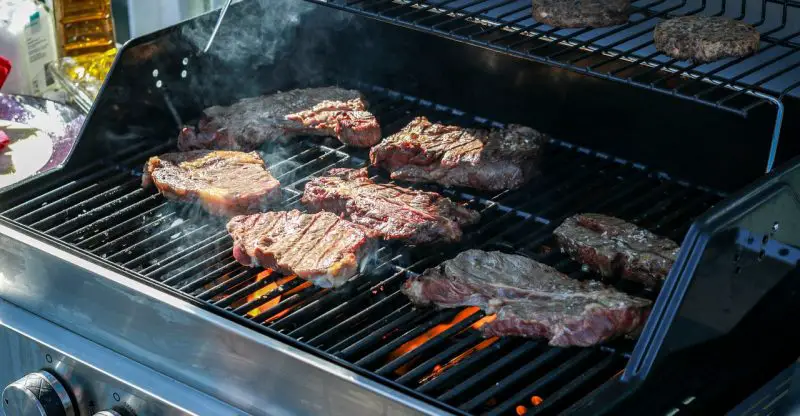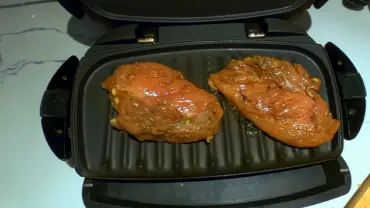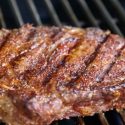How To Convert A Weber Natural Gas Grill To Propane
Do You Want to Learn the Perfect Way of How To Convert A Weber Natural Gas Grill To Propane?
While some individuals continue to use charcoal for their grilling needs, there are those who opt for propane or natural gas instead. Furthermore, propane is available for purchase at gas stations and stores specializing in home improvement. It is possible to modify a natural gas barbecue to work with propane, but it is crucial to proceed with great care.
Furthermore, why are natural gas grills more costly than charcoal grills? Natural gas is relatively less expensive than propane and is regarded as a cleaner-burning gas. You will also need a professional to install the line and connect your grill, so your initial expenditures may be significant, especially if you live far from a natural gas main.
Things You Will Require To Convert Natural Gas Grill To Propane
To convert a natural gas connection to a propane tank, you’ll need three things: a new air shutter/mixer, smaller burner orifices, and an LP regulator hose. When connecting your natural grill to a propane tank, make sure the pressure and volume are sufficient to handle the load. Here are the measures to take.
Directions
-
Check for Conversion:
First, determine whether your gas grill allows the conversion; this information is generally included in the owner’s handbook that came with the grill. If you are unsure or have misplaced the handbook, we recommend contacting the owner’s manual and asking if he can offer or propose a conversion kit for complete transformation. Even if the gas grill type does not come with a conversion kit, the manufacturer may still have one available to mail you for a price.
-
Disconnect the Gas:
When you’ve finished assembling the kit, turn off the natural gas supply to the grill and then disconnect the gas line entirely. Next, remove any side or front panels to gain access to the grill’s barbecue components.
-
Detach the Gas Valves:
Remove the gas valves, regulators, and orifices intended for use with a natural gas source and replace them with new propane-compatible grill parts. Next, make certain that all of the BBQ fittings are securely fastened. Please do not close the panels so rapidly.
-
Examine for Leakage:
Examine the gas grill carefully for any leaks around the connections. Following that, we must do a little soap bubble test to check that the connection is secure. To do this, make a tiny amount of soap solution by combining water and dish soap. Now, connect the gas line but do not light the burners. Pour a tiny quantity of the soapy solution around the connectors. If you observe bubbles, it means that there is a leak. Turn off the supply and tighten again, rechecking until the bubbles stop appearing.
In the scenario described above (NG to LP conversion), the orifices in the grill change from big to small, making it impossible to adjust them oneself. When converting from LPG to NG, the holes become larger. Hence the identical orifices may be adjusted by utilizing specific drills to expand the diameters. When necessary, seek the assistance of a technician.
Natural Gas and Liquid Propane Comparisons
Most people are unaware that the natural gas they consume is made up of several gases such as ethane, butane, methane, and propane. Propane is the ‘raw’ component of natural gas that is separated from the other gases during the processing step at most plants. Natural gas has become the new alternative fuel for liquid propane in recent years.
While the installation of natural gas is expensive at first, the fuel costs substantially less in the long term. Natural gas has a considerably cleaner flavor than propane, but it is less effective. Consider using natural gas in your outdoor kitchen or building an in-built barbecue. However, if you are a new or infrequent griller, we recommend that you stick with propane.
Energy Consumption (BTUs)
Because liquid propane holds around double the energy of natural gas, it is far more efficient than the latter. A natural gas burner consumes around 97 cubic feet per hour, whereas a propane furnace consumes approximately 40 cubic feet per hour.
A cubic foot of propane has 2,516 BTUs, while a cubic foot of natural gas contains 1,030 BTUs. Given that liquid propane contains more than double the energy of natural gas, it is far more efficient than the latter.
The Cost Factor
Natural gas is significantly less expensive than liquid propane in terms of fuel efficiency and cost. If you have a natural gas grill, upgrading to a liquid propane grill may incur additional fees in addition to the increased cost of fuel.
When natural gas costs $15 per 1,000 cubic feet, the same amount will earn you around one million BTUs, which is equal to 11.20 gallons of liquid propane. If propane fuel costs $2.50 per gallon, natural gas is a low-cost option that saves you a lot of money in the long run.
Frequently Asked Questions
Q. Is it necessary to preheat the grill?
Whether you are grilling on a gas grill or a propane one, giving enough time to preheat before grilling is important. Doing this will ensure that the grates are perfectly warmed up so that you can cook food entirely on the grill and there are no uncooked sides.
Q. Shall I clean my grill after every use?
Cleaning your grill after every use is highly important, especially in the grilling season. Therefore for this purpose, after every use, you can scrap and clean your grill when the leftover food is still hot. Thus you can consume clean and healthy food every time you grill.
Q. What are the effects of not cleaning the grill?
Well, if you will not clean your grill every now and then, you will be consuming food filled with dirt and old gunk. Moreover, all the buildup of the previous grilling will make your grill start smoking quickly. Which will then give your food a bit of bad taste.
The Bottom Line
Whether the conversion from natural gas to propane was intentional or the result of a sudden house move, there are advantages to utilising a gas grill that utilises liquid propane instead of natural gas for fuel.








